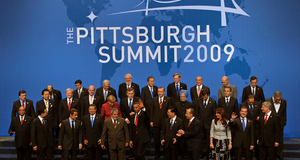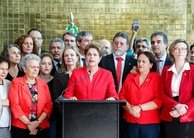|
Globalization, Inequality, and the Concentration of Wealth in the UK
Rent-seeking affects itself in the British economy through a variety of guises: laws that restrict competition in the market; poor administration of existing laws; subsidies; allocation of resources and government “munificence.” An example of this munificence would be the recent sale of a massive state asset, the Royal Mail. When floated on the stock market, the share price was massively undervalued at 330p, and 16 investors were given priority access to the shares, most of whom, according to the National Audit Office, sold off their shares almost immediately making a massive profit at an estimated cost to the tax payer of £750 million.
Poor enforcement of competition laws can lead to monopolies, further evidence of market imperfections which are manipulated. The UK energy market is the best example of a monopoly environment where six energy companies control 95% of market share. They are constantly accused of price rigging and accumulated huge profits from price hikes which have plunged 4.5 million people into fuel poverty. When the energy regulator Ofgem threatened to take action against the cartel, the chief executive of Centrica threatened if there was any political interference the country may experience power shortages through lack of investment in new power stations. Monopolies and fortunes are a big problem for economists. As stiglitz highlights, massive profits should not be amassed past the normal return to capital, again evidence of flaws in basic assumptions of liberal economic theory. Instead of trying to correct these imperfections through laws and taxation successive UK governments have embraced a culture of de-regulation and a light handed approach to the market. Gillian Tett, editor of the U.S Financial Times argues if politicians are to champion the qualities of free markets then they must guarantee that they are “free”: competitive and transparent.
Governments have also become mired in a culture of “regulatory capture” where persons are appointed who are sympathetic too or even have direct interests in the industry they are regulating. The concentration of so much wealth has also bought big business a lot of power and they can influence legislation, convincing policy makers to bend rules in their favour through lobbying and contributions to political parties. This month, the UK Chancellor George Osborne wrote an open letter to the newly created Financial Conduct Authority, who he set up to replace the disgraced Financial Services Authority, criticising a historic investigation into the Insurance Industry’s miss selling malpractices.
The intervention by the Chancellor was precipitated by a fall in share prices, reflecting the degree of influence big money still wields over the political class in the UK. Joseph Stiglitz illustrates how influential the financial sector was in appointing U.S regulators, from his experience in the White House, commenting, “If any of the potential nominees deviated from the party line that markets are self-regulating and that the banks could manage their own risk – there arose a hue and cry so great that the name wouldn’t be put forward” and that was in the Clinton Administration. Charles Ferguson, in his emotional polemic, “Predator Nation” argues the “hyperfinancialization” of the economy gave an incredible amount of power to financial elites who used it to create a “cognitive capture” where it exercised a degree of control over politics, and even subverted “academic independence” through placing prominent economists their pay roll.
As I write the UK government is still attempting to legally block the E.U’s proposed Financial Transaction Tax, or Robin Hood tax, which the Robin Hood Tax campaign claims could generate £20 billion per year in government revenue. The fact that 11 E.U countries including Germany are pressing forward with this taxation on financial transactions, reflects a clear ideological difference between the UK Government and most of her European counterparts on the contribution big business should make to society.
Another major way the state is manipulated to syphon wealth from British society is a redistributive tax structure possessing multiple loopholes which facilitates the transfer of wealth from bottom to top. The current UK top rate of tax was reduced during the recession from 50% to 45% for all earnings over £150,000. The Capital gains tax has a top rate of 28%, and the government are in the process of reducing their corporation tax from 23% to 20% in 2015, stating it will be the joint lowest in the G20 alongside Russia and Saudi Arabia. Inheritance tax is now charged at 40% on estates valued at over £325,000, although it only takes a moments search on the internet to source multiple ways to avoid payment altogether.
The very rich in society receive a large part of their income through capital gains, which is closer to the lowest income band of 20%. These rates, combined with the numerous loopholes highlight how the current UK tax structure is weighted heavily in favour of the very rich in society, where it is possible to have rates closer to the lowest income group, creating a concentration of wealth at the very top. Corporations are also used by super rich to conceal their real income, and through the numerous loopholes in inheritance tax can create an “inherited oligarchy.”
The prominent argument from the right, an argument which is used by the current UK Government is lower taxation creates higher savings that trickle down the economy creating work. Yet the fact these extreme concentrations of wealth are now being accumulated demonstrates this is not happening any more. Taxation models like these fund tax breaks for the super-rich and cost the UK far more than many programmes designed to alleviate poverty, they provide a better safety net for Banks and Corporations than the poor.
Education is the most effective tool to reduce inequality and is fundamental to building a dynamic and resilient workforce equipped with the relevant skills to compete in a global marketplace.
The primary role of a government should be to protect its citizens from harm. The greatest threat to UK society today is the polarisation in wealth which is now threatening economic as well as social stability. A similar threat occurred during the last great epoch of globalization and society rallied to defend itself by creating a filter, a government who protected it from the centripetal imperfect market forces which were tearing it apart. The cause of Britain’s Dickensian inequalities is this filter has stopped functioning correctly. The nature of markets are shaped and defined by government policy: unrestrained they are a wrecking ball wreaking havoc on society; but properly managed a source of growth and prosperity for all. The UK Government is leaving its citizens over exposed to the damaging effects of globalization, which alongside technological advancement precipitated a seismic structural change to the economy, creating a deep cleavage in the social landscape. Investment in research and development and human capital is required to bridge this fissure.
Education is the most effective tool to reduce inequality and is fundamental to building a dynamic and resilient workforce equipped with the relevant skills to compete in a global marketplace. But rather than reduce inqeuality, the UK higher education system has become a preserve of the wealthy and actually accentuates them. Globalization, migration, trade, technology, these exogenous forces only account for a growing increase in wage inequalities, not the massive concentrations of wealth accumulated by families like the Grosvenors. These concentrations are a problem for both society and economists as they contradict some of the fundamental assumptions underpinning liberal economic theory. Fortunes are being amassed because instead of correcting these imperfections the government has created inefficient markets which are manipulated by corporations and finance to maximise profits. Instead of shaping the market to benefit the majority our broken filter has shaped it to favour a few. These disproportionate wealth concentrations are now so profound they are affecting economic performance as well as damaging society. Surely it will only be a matter of time before, once more, society elects to fix its corrupted filter.
Babones, Salvatore J & Vonanda, Dorian C, “Trade Globalization and National Income Inequality – are they related” (Journal of Sociology, Volume 45, Issue 1, 2009)
Blandon, Jo & Machlin, Stephen, “Educational Inequality and the Expansion of UK Higher Education” (Scottish Journal of Political Economy)
Bourdieu, Pierre, “The Forms of Capital” (1986), in Szeman, Imre & Kaposy, Timothy, “Cultural Theory: An Anthropology” (Chichester: Wiley-Blackwell, 2011)
Coughlan, Sean, “Education, education, education,” BBC News, 14/05/07, (http://news.bbc.co.uk/2/hi/6564933.stm, accessed 23/04/2014)
Elliot, Larry, “Britain’s five richest families Worth more than the poorest 20%,” The Guardian, 17/03/14 (http://www.theguardian.com/business/2014/mar/17/oxfam-report-scale-britain-growing-financial-inequality, accessed 22/04/2014)
Fleming, Sam & Parker, George, “George Osborne’s attack takes shine off FCA anniversary,” The Financial Times, 01/04/14, (http://www.ft.com.chain.kent.ac.uk/intl/cms/s/0/a071dc22-b9be-11e3-a3ef-00144feabdc0.html#axzz316xzSce7, accessed 08/05/14)
Gilpin, Robert, “Global Political Economy: Understanding the International Economic Order” (New Jersey: Princeton University Press, 2001)
Haskel, Jonathan & Slaughter, Matthe J, “Trade, Technology and UK Wage Inequality” (The Economic Journal, Volume 3, January, 2001)
Hatton, Timothy, “Explaining Trends in UK Immigration” (Journal of Population Economics, November 2005, Volume 18, Issue 4)
HM Government, “A Guide to UK Taxation,” (UK Government Guide, https://www.gov.uk/government/uploads/system/uploads/attachment_data/file/183408/A_guide_to_UK_taxation.pdf, accessed 25/04/14)
HM Revenue & Customs, “Inheritance Tax – The Basics,” (HM Revenue & Customs, http://www.hmrc.gov.uk/inheritancetax/intro/basics.htm#1, accessed 25/04/14)
Mills, Melinda, “Globalization and Inequality” (European Sociological Review, Volume 25, Number 1, 2009)
Macalister, Terry and Farrell, Sean, “Big Six energy suppliers could be broken up after Ofgem triggers full investigation,” The Guardian, 27/03/14, (http://www.theguardian.com/business/2014/mar/27/ofgem-competition-commission-big-six-watchdog-fuel-bills, accessed 08/05/2014)
Mason, Rowena and Aitkenhead, Decca, “Danny Alexander Refuses to Rule Out Tuition Fee Rises,” The Guardian, 11/04/14, (http://www.theguardian.com/education/2014/apr/11/danny-alexander-tuition-fees-may-rise, accessed on 24/04/14)
Muller, Jerry Z, “Capitalism and Inequality: What the Right and the Left got wrong” (Foreign Affairs, March/April 2013)
Neate, Rupert, “Undervaluing Royal Mail Shares Cost Tax Payers £750 million in one day,” The Guardian, 01/03/14, (http://www.theguardian.com/uk-news/2014/apr/01/royal-mail-undervaluing-taxpayer-cable, accessed, 08/05/2014)
Neill, Gary, “The Rotten Heart of Finance,” The Economist, 07/07/12, (http://www.economist.com/node/21558281, accessed 08/05/2014)
Office for National Statistics, “Graduates in the Labour Market 2013” (http://www.ons.gov.uk/ons/rel/lmac/graduates-in-the-labour-market/2013/rpt---graduates-in-the-uk-labour-market-2013.html#tab-Graduates-in-the-UK-labour-market-2013, accessed 24/04/14)
Office for National Statistics, “Summary: UK Trade, January 2014,” (http://www.ons.gov.uk/ons/rel/uktrade/uk-trade/january-2014/summ-uk-trade--january-2014.html, accessed 23/04/14)
Oxfam Media Briefing, “A Tale of Two Britains,” Oxfam, 17/03/14, (file:///C:/Users/Shaunydoc/Downloads/212841335-A-Tale-of-Two-Britains-Inequality-in-the-UK.pdf, accessed 22/04/14)
Pickett, Kate & Wilkinson, Richard, “George Osborne should be grateful for the Robin Hood tax,” The Guardian, (http://www.theguardian.com/commentisfree/2014/may/01/george-osborne-robin-hood-tax-child-poverty-financial-sector, accessed 08/05/14),
Stiglitz, Joseph E, “The Price of Inequality” (New York: W.W Norton & Company, 2012)
Tett, Gillian, “Fixing Finance: Wall Street and the Problem of Inequality” (Foreign Affairs, July/August 2012, Review Essay)
The Programme for International Student Assessment, “The United Kingdom,” Organisation for Economic Co-ordination and Development, (http://www.oecd.org/pisa/keyfindings/PISA-2012-results-UK.pdf, accessed 07/05/2014)
The Robin Hood Tax Campaign, “The Big Idea,” (http://robinhoodtax.org.uk/how-it-works, accessed 08/05/14)
The World Bank, “Research and Development Expenditure,” (http://data.worldbank.org/indicator/GB.XPD.RSDV.GD.ZS/countries/1W?display=graph, accessed on 07/05/2014)
UK Government, “Nationality, Immigration and Asylum Act 2002,” (http://www.legislation.gov.uk/ukpga/2002/41/introduction, accessed 23/04/14)
Williamson, Jeffrey A, “Globalization and Inequality, Past and Present,” in, Friedan, Jeffrey A & Lake, David A, “International Political Economy: Perspectives on Global Power and Wealth” (London: Routledge, 2000)
- Elliot, Larry, “Britain’s five richest families Worth more than the poorest 20%,” The Guardian, 17/03/14 (http://www.theguardian.com/business/2014/mar/17/oxfam-report-scale-britain-growing-financial-inequality, accessed 22/04/2014), p.1.
- Oxfam Media Briefing, “A Tale of Two Britains,” Oxfam, 17/03/14, (file:///C:/Users/Shaunydoc/Downloads/212841335-A-Tale-of-Two-Britains-Inequality-in-the-UK.pdf, accessed 22/04/14), p.2.
- Elliot, Larry, “Britain’s five richest families Worth more than the poorest 20%,” The Guardian, 17/03/14 (http://www.theguardian.com/business/2014/mar/17/oxfam-report-scale-britain-growing-financial-inequality, accessed 22/04/2014), p.1.
- Mills, Melinda, “Globalization and Inequality” (European Sociological Review, Volume 25, Number 1, 2009), p.5.
- Ibid. pp.2-4.
- Ibid.p.5
- Williamson, Jeffrey A, “Globalization and Inequality, Past and Present,” in, Friedan, Jeffrey A & Lake, David A, “International Political Economy: Perspectives on Global Power and Wealth” (London: Routledge, 2000), p.405.
- Ibid. p.409.
- Hatton, Timothy, “Explaining Trends in UK Immigration” (Journal of Population Economics, November 2005, Volume 18, Issue 4), p.737.
- Ibid. pp. 719-725.
- Ibid. p.737.
- Ibid.
- Ibid.
- Coughlan, Sean, “Education, education, education,” BBC News, 14/05/07, (http://news.bbc.co.uk/2/hi/6564933.stm, accessed 23/04/2014), p.1.
- UK Government, “Nationality, Immigration and Asylum Act 2002,” (http://www.legislation.gov.uk/ukpga/2002/41/introduction, accessed 23/04/14), p.1.
- Gilpin, Robert, “Global Political Economy: Understanding the International Economic Order” (New Jersey: Princeton University Press, 2001), p.204.
- Ibid
- Stiglitz, Joseph E, “The Price of Inequality” (New York: W.W Norton & Company, 2012), p.56.
- Ibid.
- Gilpin, Robert, “Global Political Economy: Understanding the International Economic Order” (New Jersey: Princeton University Press, 2001), p.206.
- Haskel, Jonathan & Slaughter, Matthe J, “Trade, Technology and UK Wage Inequality” (The Economic Journal, Volume 3, January, 2001), p.183.
- Gilpin, Robert, “Global Political Economy: Understanding the International Economic Order” (New Jersey: Princeton University Press, 2001), 205.
- Ibid. p.203.
- Stiglitz, Joseph E, “The Price of Inequality” (New York: W.W Norton & Company, 2012), p.30.
- Babones, Salvatore J & Vonanda, Dorian C, “Trade Globalization and National Income Inequality – are they related” (Journal of Sociology, Volume 45, Issue 1, 2009), pp.5-24.
- Office for National Statistics, “Summary: UK Trade, January 2014,” (http://www.ons.gov.uk/ons/rel/uktrade/uk-trade/january-2014/summ-uk-trade--january-2014.html, accessed 23/04/14), p.1.
- Gilpin, Robert, “Global Political Economy: Understanding the International Economic Order” (New Jersey: Princeton University Press, 2001), p.214.
- Ibid.
- Ibid. p.217.
- The World Bank, “Research and Development Expenditure,” (http://data.worldbank.org/indicator/GB.XPD.RSDV.GD.ZS/countries/1W?display=graph, accessed on 07/05/2014), p.1.
- Ibid.
- The Programme for International Student Assessment, “The United Kingdom,” Organisation for Economic Co-ordination and Development, (http://www.oecd.org/pisa/keyfindings/PISA-2012-results-UK.pdf, accessed 07/05/2014), p.1.
- Office for National Statistics, “Graduates in the Labour Market 2013” (http://www.ons.gov.uk/ons/rel/lmac/graduates-in-the-labour-market/2013/rpt---graduates-in-the-uk-labour-market-2013.html#tab-Graduates-in-the-UK-labour-market-2013, accessed 24/04/14), p8.
- Gilpin, Robert, “Global Political Economy: Understanding the International Economic Order” (New Jersey: Princeton University Press, 2001), p.208.
- Ibid
- Blandon, Jo & Machlin, Stephen, “Educational Inequality and the Expansion of UK Higher Education” (Scottish Journal of Political Economy), pp.230-232.
- Ibid. p.232.
- Ibid. p.231.
- Ibid.
- Ibid. p.238.
- Ibid. p.235
- Ibid.
- Ibid. p.233.
- Ibid.
- Mason, Rowena and Aitkenhead, Decca, “Danny Alexander Refuses to Rule Out Tuition Fee Rises,” The Guardian, 11/04/14, (http://www.theguardian.com/education/2014/apr/11/danny-alexander-tuition-fees-may-rise, accessed on 24/04/14), p.1.
- Blandon, Jo & Machlin, Stephen, “Educational Inequality and the Expansion of UK Higher Education” (Scottish Journal of Political Economy), p.246.
- Bourdieu, Pierre, “The Forms of Capital” (1986), in Szeman, Imre & Kaposy, Timothy, “Cultural Theory: An Anthropology” (Chichester: Wiley-Blackwell, 2011), p.81.
- Ibid. p84.
- Ibid. p.90.
- Muller, Jerry Z, “Capitalism and Inequality: What the Right and the Left got wrong” (Foreign Affairs, March/April 2013), P.11.
- Ibid. p.9.
- Ibid. p.11.
- Ibid. p.12.
- Oxfam Media Briefing, “A Tale of Two Britains,” Oxfam, 17/03/14, (file:///C:/Users/Shaunydoc/Downloads/212841335-A-Tale-of-Two-Britains-Inequality-in-the-UK.pdf, accessed 22/04/14), p.1.
- Tett, Gillian, “Fixing Finance: Wall Street and the Problem of Inequality” (Foreign Affairs, July/August 2012, Review Essay), p.2.
- Ibid. p.3.
- Ibid. p 6.
- Stiglitz, Joseph E, “The Price of Inequality” (New York: W.W Norton & Company, 2012), p.xx
- Ibid. p.32.
- Ibid. pp33-34.
- Stiglitz, Joseph E, “The Price of Inequality” (New York: W.W Norton & Company, 2012), .P.33.
- Neill, Gary, “The Rotten Heart of Finance,” The Economist, 07/07/12, (http://www.economist.com/node/21558281, accessed 08/05/2014), p.2.
- Ibid. pp39-49.
- Neate, Rupert, “Undervaluing Royal Mail Shares Cost Tax Payers £750 million in one day,” The Guardian, 01/03/14, (http://www.theguardian.com/uk-news/2014/apr/01/royal-mail-undervaluing-taxpayer-cable, accessed, 08/05/2014), p.1.
- Macalister, Terry and Farrell, Sean, “Big Six energy suppliers could be broken up after Ofgem triggers full investigation,” The Guardian, 27/03/14, (http://www.theguardian.com/business/2014/mar/27/ofgem-competition-commission-big-six-watchdog-fuel-bills, accessed 08/05/2014), p.1.
- Ibid.
- Ibid.
- Stiglitz, Joseph E, “The Price of Inequality” (New York: W.W Norton & Company, 2012), p.43.
- Tett, Gillian, “Fixing Finance: Wall Street and the Problem of Inequality” (Foreign Affairs, July/August 2012, Review Essay), p.7.
- Stiglitz, Joseph E, “The Price of Inequality” (New York: W.W Norton & Company, 2012), p.47.
- Fleming, Sam & Parker, George, “George Osborne’s attack takes shine off FCA anniversary,” The Financial Times, 01/04/14, (http://www.ft.com.chain.kent.ac.uk/intl/cms/s/0/a071dc22-b9be-11e3-a3ef-00144feabdc0.html#axzz316xzSce7, accessed 08/05/14), p.1.
- Stiglitz, Joseph E, “The Price of Inequality” (New York: W.W Norton & Company, 2012), p.47.
- Tett, Gillian, “Fixing Finance: Wall Street and the Problem of Inequality” (Foreign Affairs, July/August 2012, Review Essay), p.5.
- The Robin Hood Tax Campaign, “The Big Idea,” (http://robinhoodtax.org.uk/how-it-works, accessed 08/05/14), p.1.
- Pickett, Kate & Wilkinson, Richard, “George Osborne should be grateful for the Robin Hood tax,” The Guardian, (http://www.theguardian.com/commentisfree/2014/may/01/george-osborne-robin-hood-tax-child-poverty-financial-sector, accessed 08/05/14), p.1.
- HM Government, “A Guide to UK Taxation,” (UK Government Guide, https://www.gov.uk/government/uploads/system/uploads/attachment_data/file/183408/A_guide_to_UK_taxation.pdf, accessed 25/04/14), p. 16.
- Ibid.
- Ibid. pp.3-8.
- HM Revenue & Customs, “Inheritance Tax – The Basics,” (HM Revenue & Customs, http://www.hmrc.gov.uk/inheritancetax/intro/basics.htm#1, accessed 25/04/14), p.1.
- Ibid.
- HM Government, “A Guide to UK Taxation,” (UK Government Guide, https://www.gov.uk/government/uploads/system/uploads/attachment_data/file/183408/A_guide_to_UK_taxation.pdf, accessed 25/04/14), p.16.
- Stiglitz, Joseph E, “The Price of Inequality” (New York: W.W Norton & Company, 2012), p.73.
- Ibid, p.71.
- Ibid. p.74.
Babones, Salvatore J & Vonanda, Dorian C, “Trade Globalization and National Income Inequality – are they related” (Journal of Sociology, Volume 45, Issue 1, 2009)
Blandon, Jo & Machlin, Stephen, “Educational Inequality and the Expansion of UK Higher Education” (Scottish Journal of Political Economy)
Bourdieu, Pierre, “The Forms of Capital” (1986), in Szeman, Imre & Kaposy, Timothy, “Cultural Theory: An Anthropology” (Chichester: Wiley-Blackwell, 2011)
Coughlan, Sean, “Education, education, education,” BBC News, 14/05/07, (http://news.bbc.co.uk/2/hi/6564933.stm, accessed 23/04/2014)
Elliot, Larry, “Britain’s five richest families Worth more than the poorest 20%,” The Guardian, 17/03/14 (http://www.theguardian.com/business/2014/mar/17/oxfam-report-scale-britain-growing-financial-inequality, accessed 22/04/2014)
Fleming, Sam & Parker, George, “George Osborne’s attack takes shine off FCA anniversary,” The Financial Times, 01/04/14, (http://www.ft.com.chain.kent.ac.uk/intl/cms/s/0/a071dc22-b9be-11e3-a3ef-00144feabdc0.html#axzz316xzSce7, accessed 08/05/14)
Gilpin, Robert, “Global Political Economy: Understanding the International Economic Order” (New Jersey: Princeton University Press, 2001)
Haskel, Jonathan & Slaughter, Matthe J, “Trade, Technology and UK Wage Inequality” (The Economic Journal, Volume 3, January, 2001)
Hatton, Timothy, “Explaining Trends in UK Immigration” (Journal of Population Economics, November 2005, Volume 18, Issue 4)
HM Government, “A Guide to UK Taxation,” (UK Government Guide, https://www.gov.uk/government/uploads/system/uploads/attachment_data/file/183408/A_guide_to_UK_taxation.pdf, accessed 25/04/14)
HM Revenue & Customs, “Inheritance Tax – The Basics,” (HM Revenue & Customs, http://www.hmrc.gov.uk/inheritancetax/intro/basics.htm#1, accessed 25/04/14)
Mills, Melinda, “Globalization and Inequality” (European Sociological Review, Volume 25, Number 1, 2009)
Macalister, Terry and Farrell, Sean, “Big Six energy suppliers could be broken up after Ofgem triggers full investigation,” The Guardian, 27/03/14, (http://www.theguardian.com/business/2014/mar/27/ofgem-competition-commission-big-six-watchdog-fuel-bills, accessed 08/05/2014)
Mason, Rowena and Aitkenhead, Decca, “Danny Alexander Refuses to Rule Out Tuition Fee Rises,” The Guardian, 11/04/14, (http://www.theguardian.com/education/2014/apr/11/danny-alexander-tuition-fees-may-rise, accessed on 24/04/14)
Muller, Jerry Z, “Capitalism and Inequality: What the Right and the Left got wrong” (Foreign Affairs, March/April 2013)
Neate, Rupert, “Undervaluing Royal Mail Shares Cost Tax Payers £750 million in one day,” The Guardian, 01/03/14, (http://www.theguardian.com/uk-news/2014/apr/01/royal-mail-undervaluing-taxpayer-cable, accessed, 08/05/2014)
Neill, Gary, “The Rotten Heart of Finance,” The Economist, 07/07/12, (http://www.economist.com/node/21558281, accessed 08/05/2014)
Office for National Statistics, “Graduates in the Labour Market 2013” (http://www.ons.gov.uk/ons/rel/lmac/graduates-in-the-labour-market/2013/rpt---graduates-in-the-uk-labour-market-2013.html#tab-Graduates-in-the-UK-labour-market-2013, accessed 24/04/14)
Office for National Statistics, “Summary: UK Trade, January 2014,” (http://www.ons.gov.uk/ons/rel/uktrade/uk-trade/january-2014/summ-uk-trade--january-2014.html, accessed 23/04/14)
Oxfam Media Briefing, “A Tale of Two Britains,” Oxfam, 17/03/14, (file:///C:/Users/Shaunydoc/Downloads/212841335-A-Tale-of-Two-Britains-Inequality-in-the-UK.pdf, accessed 22/04/14)
Pickett, Kate & Wilkinson, Richard, “George Osborne should be grateful for the Robin Hood tax,” The Guardian, (http://www.theguardian.com/commentisfree/2014/may/01/george-osborne-robin-hood-tax-child-poverty-financial-sector, accessed 08/05/14),
Stiglitz, Joseph E, “The Price of Inequality” (New York: W.W Norton & Company, 2012)
Tett, Gillian, “Fixing Finance: Wall Street and the Problem of Inequality” (Foreign Affairs, July/August 2012, Review Essay)
The Programme for International Student Assessment, “The United Kingdom,” Organisation for Economic Co-ordination and Development, (http://www.oecd.org/pisa/keyfindings/PISA-2012-results-UK.pdf, accessed 07/05/2014)
The Robin Hood Tax Campaign, “The Big Idea,” (http://robinhoodtax.org.uk/how-it-works, accessed 08/05/14)
The World Bank, “Research and Development Expenditure,” (http://data.worldbank.org/indicator/GB.XPD.RSDV.GD.ZS/countries/1W?display=graph, accessed on 07/05/2014)
UK Government, “Nationality, Immigration and Asylum Act 2002,” (http://www.legislation.gov.uk/ukpga/2002/41/introduction, accessed 23/04/14)
Williamson, Jeffrey A, “Globalization and Inequality, Past and Present,” in, Friedan, Jeffrey A & Lake, David A, “International Political Economy: Perspectives on Global Power and Wealth” (London: Routledge, 2000)
Endnotes
- Elliot, Larry, “Britain’s five richest families Worth more than the poorest 20%,” The Guardian, 17/03/14 (http://www.theguardian.com/business/2014/mar/17/oxfam-report-scale-britain-growing-financial-inequality, accessed 22/04/2014), p.1.
- Oxfam Media Briefing, “A Tale of Two Britains,” Oxfam, 17/03/14, (file:///C:/Users/Shaunydoc/Downloads/212841335-A-Tale-of-Two-Britains-Inequality-in-the-UK.pdf, accessed 22/04/14), p.2.
- Elliot, Larry, “Britain’s five richest families Worth more than the poorest 20%,” The Guardian, 17/03/14 (http://www.theguardian.com/business/2014/mar/17/oxfam-report-scale-britain-growing-financial-inequality, accessed 22/04/2014), p.1.
- Mills, Melinda, “Globalization and Inequality” (European Sociological Review, Volume 25, Number 1, 2009), p.5.
- Ibid. pp.2-4.
- Ibid.p.5
- Williamson, Jeffrey A, “Globalization and Inequality, Past and Present,” in, Friedan, Jeffrey A & Lake, David A, “International Political Economy: Perspectives on Global Power and Wealth” (London: Routledge, 2000), p.405.
- Ibid. p.409.
- Hatton, Timothy, “Explaining Trends in UK Immigration” (Journal of Population Economics, November 2005, Volume 18, Issue 4), p.737.
- Ibid. pp. 719-725.
- Ibid. p.737.
- Ibid.
- Ibid.
- Coughlan, Sean, “Education, education, education,” BBC News, 14/05/07, (http://news.bbc.co.uk/2/hi/6564933.stm, accessed 23/04/2014), p.1.
- UK Government, “Nationality, Immigration and Asylum Act 2002,” (http://www.legislation.gov.uk/ukpga/2002/41/introduction, accessed 23/04/14), p.1.
- Gilpin, Robert, “Global Political Economy: Understanding the International Economic Order” (New Jersey: Princeton University Press, 2001), p.204.
- Ibid
- Stiglitz, Joseph E, “The Price of Inequality” (New York: W.W Norton & Company, 2012), p.56.
- Ibid.
- Gilpin, Robert, “Global Political Economy: Understanding the International Economic Order” (New Jersey: Princeton University Press, 2001), p.206.
- Haskel, Jonathan & Slaughter, Matthe J, “Trade, Technology and UK Wage Inequality” (The Economic Journal, Volume 3, January, 2001), p.183.
- Gilpin, Robert, “Global Political Economy: Understanding the International Economic Order” (New Jersey: Princeton University Press, 2001), 205.
- Ibid. p.203.
- Stiglitz, Joseph E, “The Price of Inequality” (New York: W.W Norton & Company, 2012), p.30.
- Babones, Salvatore J & Vonanda, Dorian C, “Trade Globalization and National Income Inequality – are they related” (Journal of Sociology, Volume 45, Issue 1, 2009), pp.5-24.
- Office for National Statistics, “Summary: UK Trade, January 2014,” (http://www.ons.gov.uk/ons/rel/uktrade/uk-trade/january-2014/summ-uk-trade--january-2014.html, accessed 23/04/14), p.1.
- Gilpin, Robert, “Global Political Economy: Understanding the International Economic Order” (New Jersey: Princeton University Press, 2001), p.214.
- Ibid.
- Ibid. p.217.
- The World Bank, “Research and Development Expenditure,” (http://data.worldbank.org/indicator/GB.XPD.RSDV.GD.ZS/countries/1W?display=graph, accessed on 07/05/2014), p.1.
- Ibid.
- The Programme for International Student Assessment, “The United Kingdom,” Organisation for Economic Co-ordination and Development, (http://www.oecd.org/pisa/keyfindings/PISA-2012-results-UK.pdf, accessed 07/05/2014), p.1.
- Office for National Statistics, “Graduates in the Labour Market 2013” (http://www.ons.gov.uk/ons/rel/lmac/graduates-in-the-labour-market/2013/rpt---graduates-in-the-uk-labour-market-2013.html#tab-Graduates-in-the-UK-labour-market-2013, accessed 24/04/14), p8.
- Gilpin, Robert, “Global Political Economy: Understanding the International Economic Order” (New Jersey: Princeton University Press, 2001), p.208.
- Ibid
- Blandon, Jo & Machlin, Stephen, “Educational Inequality and the Expansion of UK Higher Education” (Scottish Journal of Political Economy), pp.230-232.
- Ibid. p.232.
- Ibid. p.231.
- Ibid.
- Ibid. p.238.
- Ibid. p.235
- Ibid.
- Ibid. p.233.
- Ibid.
- Mason, Rowena and Aitkenhead, Decca, “Danny Alexander Refuses to Rule Out Tuition Fee Rises,” The Guardian, 11/04/14, (http://www.theguardian.com/education/2014/apr/11/danny-alexander-tuition-fees-may-rise, accessed on 24/04/14), p.1.
- Blandon, Jo & Machlin, Stephen, “Educational Inequality and the Expansion of UK Higher Education” (Scottish Journal of Political Economy), p.246.
- Bourdieu, Pierre, “The Forms of Capital” (1986), in Szeman, Imre & Kaposy, Timothy, “Cultural Theory: An Anthropology” (Chichester: Wiley-Blackwell, 2011), p.81.
- Ibid. p84.
- Ibid. p.90.
- Muller, Jerry Z, “Capitalism and Inequality: What the Right and the Left got wrong” (Foreign Affairs, March/April 2013), P.11.
- Ibid. p.9.
- Ibid. p.11.
- Ibid. p.12.
- Oxfam Media Briefing, “A Tale of Two Britains,” Oxfam, 17/03/14, (file:///C:/Users/Shaunydoc/Downloads/212841335-A-Tale-of-Two-Britains-Inequality-in-the-UK.pdf, accessed 22/04/14), p.1.
- Tett, Gillian, “Fixing Finance: Wall Street and the Problem of Inequality” (Foreign Affairs, July/August 2012, Review Essay), p.2.
- Ibid. p.3.
- Ibid. p 6.
- Stiglitz, Joseph E, “The Price of Inequality” (New York: W.W Norton & Company, 2012), p.xx
- Ibid. p.32.
- Ibid. pp33-34.
- Stiglitz, Joseph E, “The Price of Inequality” (New York: W.W Norton & Company, 2012), .P.33.
- Neill, Gary, “The Rotten Heart of Finance,” The Economist, 07/07/12, (http://www.economist.com/node/21558281, accessed 08/05/2014), p.2.
- Ibid. pp39-49.
- Neate, Rupert, “Undervaluing Royal Mail Shares Cost Tax Payers £750 million in one day,” The Guardian, 01/03/14, (http://www.theguardian.com/uk-news/2014/apr/01/royal-mail-undervaluing-taxpayer-cable, accessed, 08/05/2014), p.1.
- Macalister, Terry and Farrell, Sean, “Big Six energy suppliers could be broken up after Ofgem triggers full investigation,” The Guardian, 27/03/14, (http://www.theguardian.com/business/2014/mar/27/ofgem-competition-commission-big-six-watchdog-fuel-bills, accessed 08/05/2014), p.1.
- Ibid.
- Ibid.
- Stiglitz, Joseph E, “The Price of Inequality” (New York: W.W Norton & Company, 2012), p.43.
- Tett, Gillian, “Fixing Finance: Wall Street and the Problem of Inequality” (Foreign Affairs, July/August 2012, Review Essay), p.7.
- Stiglitz, Joseph E, “The Price of Inequality” (New York: W.W Norton & Company, 2012), p.47.
- Fleming, Sam & Parker, George, “George Osborne’s attack takes shine off FCA anniversary,” The Financial Times, 01/04/14, (http://www.ft.com.chain.kent.ac.uk/intl/cms/s/0/a071dc22-b9be-11e3-a3ef-00144feabdc0.html#axzz316xzSce7, accessed 08/05/14), p.1.
- Stiglitz, Joseph E, “The Price of Inequality” (New York: W.W Norton & Company, 2012), p.47.
- Tett, Gillian, “Fixing Finance: Wall Street and the Problem of Inequality” (Foreign Affairs, July/August 2012, Review Essay), p.5.
- The Robin Hood Tax Campaign, “The Big Idea,” (http://robinhoodtax.org.uk/how-it-works, accessed 08/05/14), p.1.
- Pickett, Kate & Wilkinson, Richard, “George Osborne should be grateful for the Robin Hood tax,” The Guardian, (http://www.theguardian.com/commentisfree/2014/may/01/george-osborne-robin-hood-tax-child-poverty-financial-sector, accessed 08/05/14), p.1.
- HM Government, “A Guide to UK Taxation,” (UK Government Guide, https://www.gov.uk/government/uploads/system/uploads/attachment_data/file/183408/A_guide_to_UK_taxation.pdf, accessed 25/04/14), p. 16.
- Ibid.
- Ibid. pp.3-8.
- HM Revenue & Customs, “Inheritance Tax – The Basics,” (HM Revenue & Customs, http://www.hmrc.gov.uk/inheritancetax/intro/basics.htm#1, accessed 25/04/14), p.1.
- Ibid.
- HM Government, “A Guide to UK Taxation,” (UK Government Guide, https://www.gov.uk/government/uploads/system/uploads/attachment_data/file/183408/A_guide_to_UK_taxation.pdf, accessed 25/04/14), p.16.
- Stiglitz, Joseph E, “The Price of Inequality” (New York: W.W Norton & Company, 2012), p.73.
- Ibid, p.71.
- Ibid. p.74.
Save Citation » (Works with EndNote, ProCite, & Reference Manager)
APA 6th
Docherty, S. (2015). "Globalization, Inequality, and the Concentration of Wealth in the UK." Inquiries Journal/Student Pulse, 7(11). Retrieved from http://www.inquiriesjournal.com/a?id=1315
MLA
Docherty, Shaun. "Globalization, Inequality, and the Concentration of Wealth in the UK." Inquiries Journal/Student Pulse 7.11 (2015). <http://www.inquiriesjournal.com/a?id=1315>
Chicago 16th
Docherty, Shaun. 2015. Globalization, Inequality, and the Concentration of Wealth in the UK. Inquiries Journal/Student Pulse 7 (11), http://www.inquiriesjournal.com/a?id=1315
Harvard
DOCHERTY, S. 2015. Globalization, Inequality, and the Concentration of Wealth in the UK. Inquiries Journal/Student Pulse [Online], 7. Available: http://www.inquiriesjournal.com/a?id=1315
Suggested Reading from Inquiries Journal
We met Scott and Kerstin on different sides of the Atlantic. I met the former in Philadelphia on my way to a convenience store in the early hours of a busy morning when my work schedule benefited from a short coffee break... MORE»
Recent work with the Economic Complexity Index (ECI) has shown that a country’s productive structure constrains its level of economic growth and income inequality. Building on previous research that identified an increasing... MORE»
This essay seeks to elucidate the puzzle of China's policy decision to create a Sovereign Wealth Fund (SWF). Much literature has been put forth on the topic to predict the strategic benefits China may be pursuing through its investments in American firms using its SWF, China Investment Corporation (CIC). Such speculation on these... MORE»
Few would disagree that the most significant development at the G-20 meeting in Pittsburgh during September 24-25, 2009 was the formal acknowledgement of the changing of the guards. In the draft communiqué, President Barack Obama declared that from now on, the Group of 20 (G-20) will be the primary organization responsible... MORE»
Latest in Economics
2020, Vol. 12 No. 09
Recent work with the Economic Complexity Index (ECI) has shown that a country’s productive structure constrains its level of economic growth and income inequality. Building on previous research that identified an increasing gap between Latin... Read Article »
2018, Vol. 10 No. 10
The value proposition in the commercial setting is the functional relationship of quality and price. It is held to be a utility maximizing function of the relationship between buyer and seller. Its proponents assert that translation of the value... Read Article »
2018, Vol. 10 No. 03
Devastated by an economic collapse at the end of the 20th century, Japan’s economy entered a decade long period of stagnation. Now, Japan has found stable leadership, but attempts at new economic growth have fallen through. A combination of... Read Article »
2014, Vol. 6 No. 10
In July 2012, Spain's unemployment rate was above 20%, its stock market was at its lowest point in a decade, and the government was borrowing at a rate of 7.6%. With domestic demand depleted and no sign of recovery in sight, President Mariano Rajoy... Read Article »
2017, Vol. 9 No. 10
During the periods of the Agrarian Revolt and the 1920s, farmers were unhappy with the economic conditions in which they found themselves. Both periods witnessed the ascent of political movements that endeavored to aid farmers in their economic... Read Article »
2017, Vol. 7 No. 2
In 2009, Brazil was in the path to become a superpower. Immune to the economic crises of 2008, the country's economy benefitted from the commodity boom, achieving a growth rate of 7.5 per cent in 2010, when Rousseff was elected. A few years later... Read Article »
2012, Vol. 2 No. 1
The research completed aimed to show that the idea of fair trade, using the example of goals for the chocolate industry of the Ivory Coast, can be described as an example of the economic ideal which Karl Marx imagined. By comparing specific topics... Read Article »
|



















